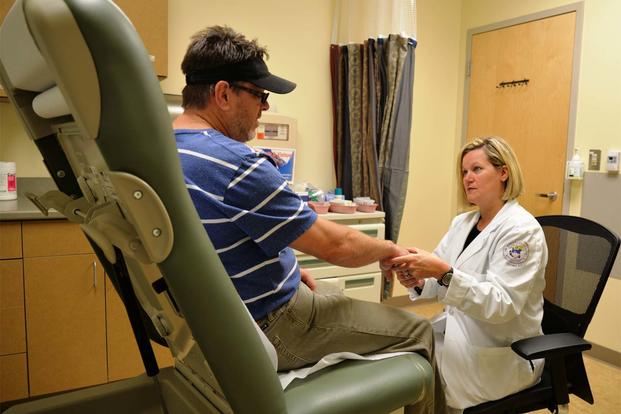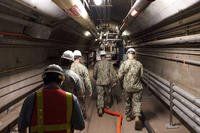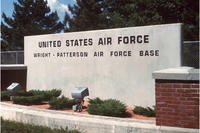Editor's Note: Military.com was contacted by Congressional staff today informing us that the originally cited portion of the legislation was removed from the final draft bill passed by Congress and sent to the White House. The final version of the law does not direct VA to exclude nurses from performing specialized nurse anesthetist duties. However, conflicting information still remains online on government websites.
Seeking to address concerns about wait times due to doctor shortages, the Department of Veterans Affairs in May proposed expanding the duties of nurses with advanced degrees to allow them to perform some care duties normally assigned to doctors.
Congress was considering legislation to prevent the VA from expanding nurses' duties, but the proposal never made it into the final draft of legislation which was presented to the White House on Sept. 21.
The VA wanted to expand the duties of nurses with advanced degrees to perform what it saw as routine tasks within the medical environment. These nurses, known as Advanced Practice Registered Nurses (APRNs), usually have advanced degrees such as masters, post-masters or doctorates.
The VA sought to expand the nurses' duties to allow them to conduct physicals; diagnose, treat and manage patients with both acute and chronic conditions; order and interpret diagnostic and lab tests; administer anesthesia; deliver babies; and prescribe medications. Currently, only doctors can perform these duties at VA hospitals.
According to the VA, about 6,500 of its 93,000 registered nurses possess advanced degrees and would be able to fill in for doctors, as is done in the military and in 21 states.
Language contained in early versions of H.R.5985 -- the Department of Veterans Affairs Expiring Authorities Act of 2016, which is mainly a funding bill extending the VA's authority to collect co-payments for nursing home care, and extending authority for several pilot programs -- prevented the VA from assigning any anesthetist duties to these nurses. However, during the legislative process that provision was removed from the final version of the law which passed Congress and was presented to the White House.
When the VA proposed the expanded duties for nurses, there was a firestorm of activity among lobbying groups on both sides of the issue. More than 187,000 people commented on the proposed rule change, and many professional societies and other interested groups set up websites to publicize their side of the issue and urge their constituents to contact Congress about it.
Currently, none of the other expanded duties for nurses has been prohibited by law, but there is no word on when, or if, the VA will be using nurses to perform those duties on a regular basis.
-- Jim Absher can be reached at Jim.Absher@monster.com.






























